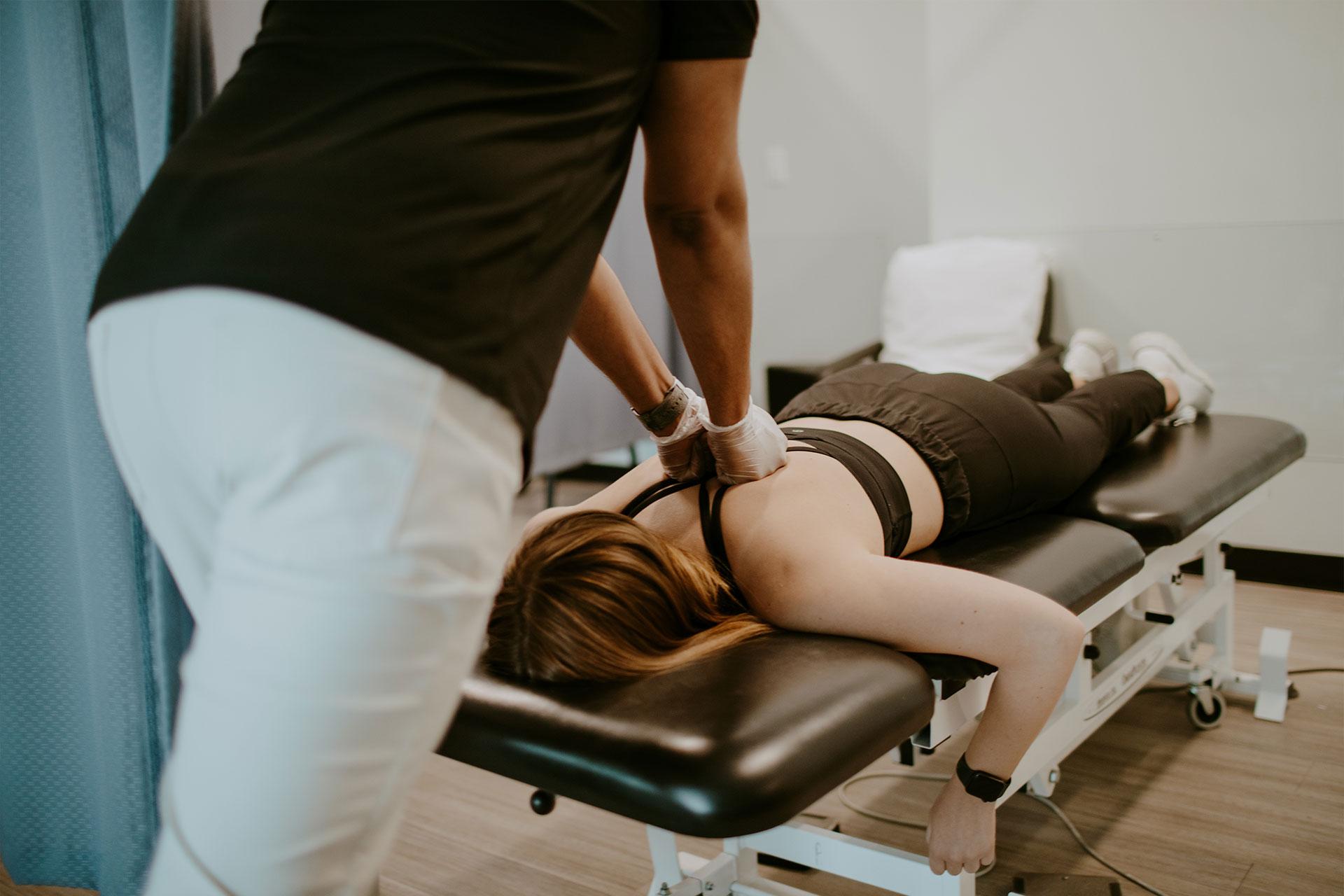Combining physiotherapy and Registered Massage Therapy (RMT) offers a comprehensive approach to healing and wellness. You can address different aspects of your physical health by using both methods together. This combination allows you to improve mobility, reduce pain, and enhance recovery.
Physiotherapy focuses on restoring movement and function after injury or illness. It uses exercises and techniques to rebuild strength and flexibility. RMT complements this by easing muscle tension and promoting relaxation, which can help with pain relief and stress reduction.
By including both therapies in your routine, you take an active role in your health. This combined approach can lead to better outcomes, as each therapy supports the other. You’ll likely find that your recovery time shortens and your overall well-being increases.

Visit Our Top Rated Clinic in Surrey
Come visit the physiotherapists and massage therapists at Surrey 88 Ave Physiotherapy and Sports Injury Clinic. We offer same day appointments and 24/7 online booking.
Benefits of Combining Physiotherapy and RMT
Combining physiotherapy and registered massage therapy (RMT) can provide significant advantages. It targets pain relief, enhances mobility, and speeds up recovery.
Enhanced Pain Management
By combining these approaches, you can experience better pain control. Physiotherapy focuses on exercises and stretches that strengthen muscles. RMT relieves muscle tension and promotes relaxation through massage.
Together, they address both the cause and symptoms of pain. This can lead to quicker and more effective relief for problems like back pain or joint discomfort.
By targeting both the physical and muscular aspects, you can find a more comfortable and balanced level of pain management. This can improve your daily activities and quality of life.
Improved Mobility and Function
When you engage in both physiotherapy and RMT, your range of motion can be significantly improved. Physiotherapy provides exercises that increase joint and muscle flexibility.
With RMT, you’ll benefit from techniques that reduce stiffness and improve muscle elasticity. This combination can enhance how your body moves and functions. It can be particularly useful for those recovering from injuries or dealing with chronic conditions.
You may find that everyday tasks become easier, promoting a more active lifestyle without restrictions or discomfort.
Accelerated Recovery Process
The integration of physiotherapy and RMT can speed up the healing process. Physiotherapy aids in the rehabilitation of injured areas through targeted exercises. RMT supports this by increasing blood flow and reducing muscle soreness.
This partnership can result in a faster return to your normal routines. Whether you are recovering from surgery, an accident, or a sports-related injury, the two therapies work together to support and accelerate recovery.
You can look forward to regaining strength and resilience more quickly than using one method alone.
Implementing a Combined Approach
By merging physiotherapy and registered massage therapy (RMT), you can benefit from improved recovery and pain management. This approach involves personalized assessments, integrative techniques, and ongoing evaluation.
Assessment and Personalized Treatment Plans
Your journey starts with a detailed assessment. During this step, both physiotherapists and RMTs evaluate your needs and conditions. They look at your medical history, physical condition, and specific problems. This assessment helps create a personalized treatment plan tailored just for you.
The plan will address your unique goals and needs. It often includes different therapies and exercises aimed at improving mobility, reducing pain, and enhancing overall well-being. Close communication between both professionals ensures that your treatment plan is comprehensive and effective.
Integrative Techniques and Therapies
In a combined approach, various techniques and therapies merge for better results. Physiotherapy often uses exercises, stretches, and manual therapy to restore function. RMT focuses on massage techniques to relax muscles and improve circulation.
These therapies can complement each other. For example, massage therapy may relax tight muscles, making it easier for physiotherapy exercises to be more effective. This integration means you benefit from a wide range of techniques, providing more comprehensive care.
Continuous Evaluation and Adaptation
As you progress, continuous evaluation is key. Regular check-ins help track progress and detect any changes in your condition. Adjustments to your treatment plan may be necessary to keep it effective and aligned with your goals.
Both physiotherapists and RMTs work together to make these changes. They assess how your body responds to treatments and modify techniques accordingly. This ensures your plan evolves with you, offering the best support for your health journey.
Conclusion
Combining physiotherapy and massage therapy offers many benefits. These treatments can help you recover faster from injuries and improve your overall health and well-being. Physiotherapy focuses on movement and function, while Registered Massage Therapy (RMT) relaxes muscles and reduces stress.
By joining these two approaches, you work on both recovery and relaxation. Your body gets the best of both worlds, aiming for optimal health. You might see improvements in pain relief, mobility, and muscle relaxation.
Taking charge of your health is important. If you’re thinking about trying this approach, consider reaching out. Visiting us at Allied Physiotherapy can be your next step. Our team is ready to assist you on your path to wellness.